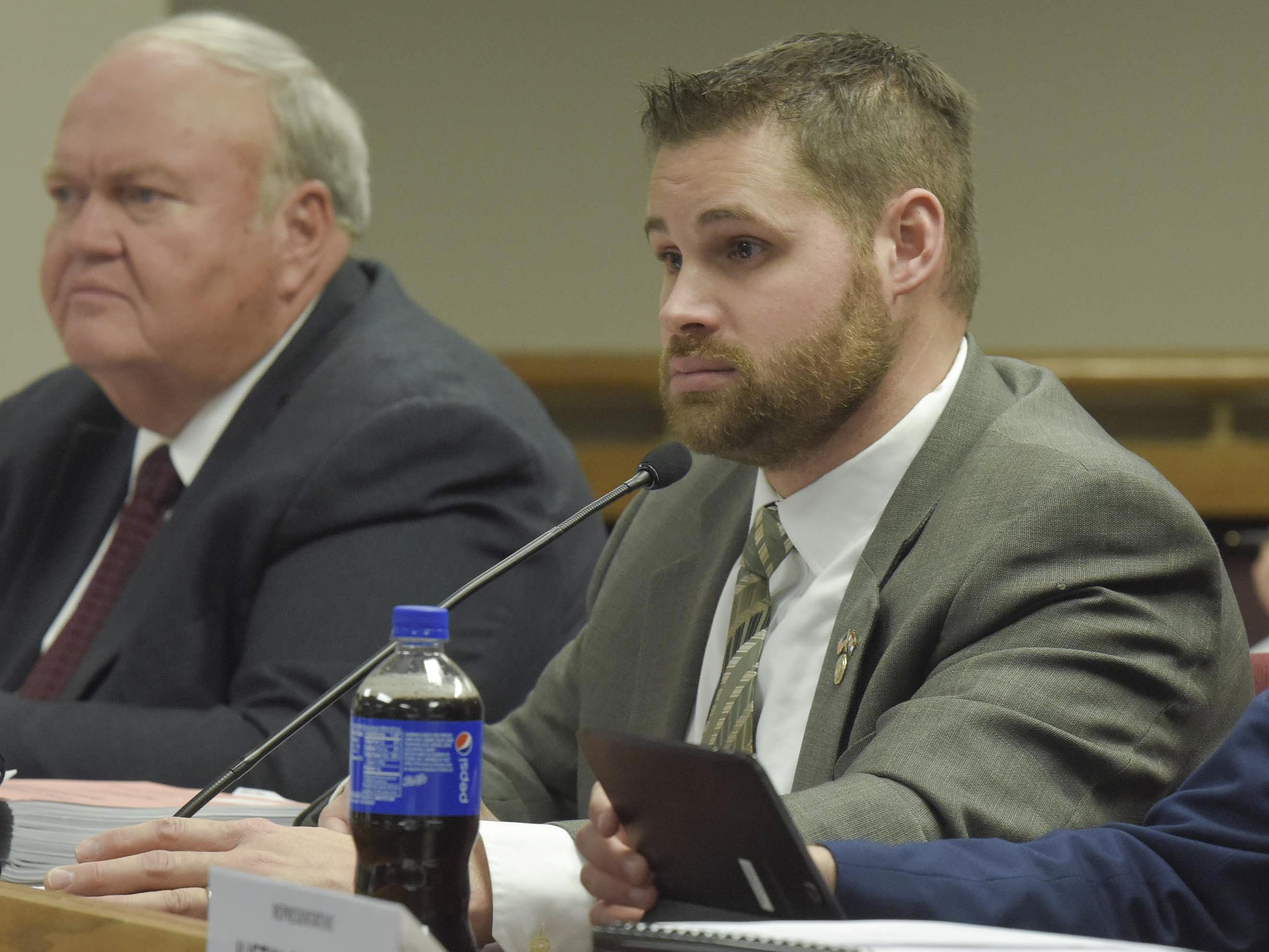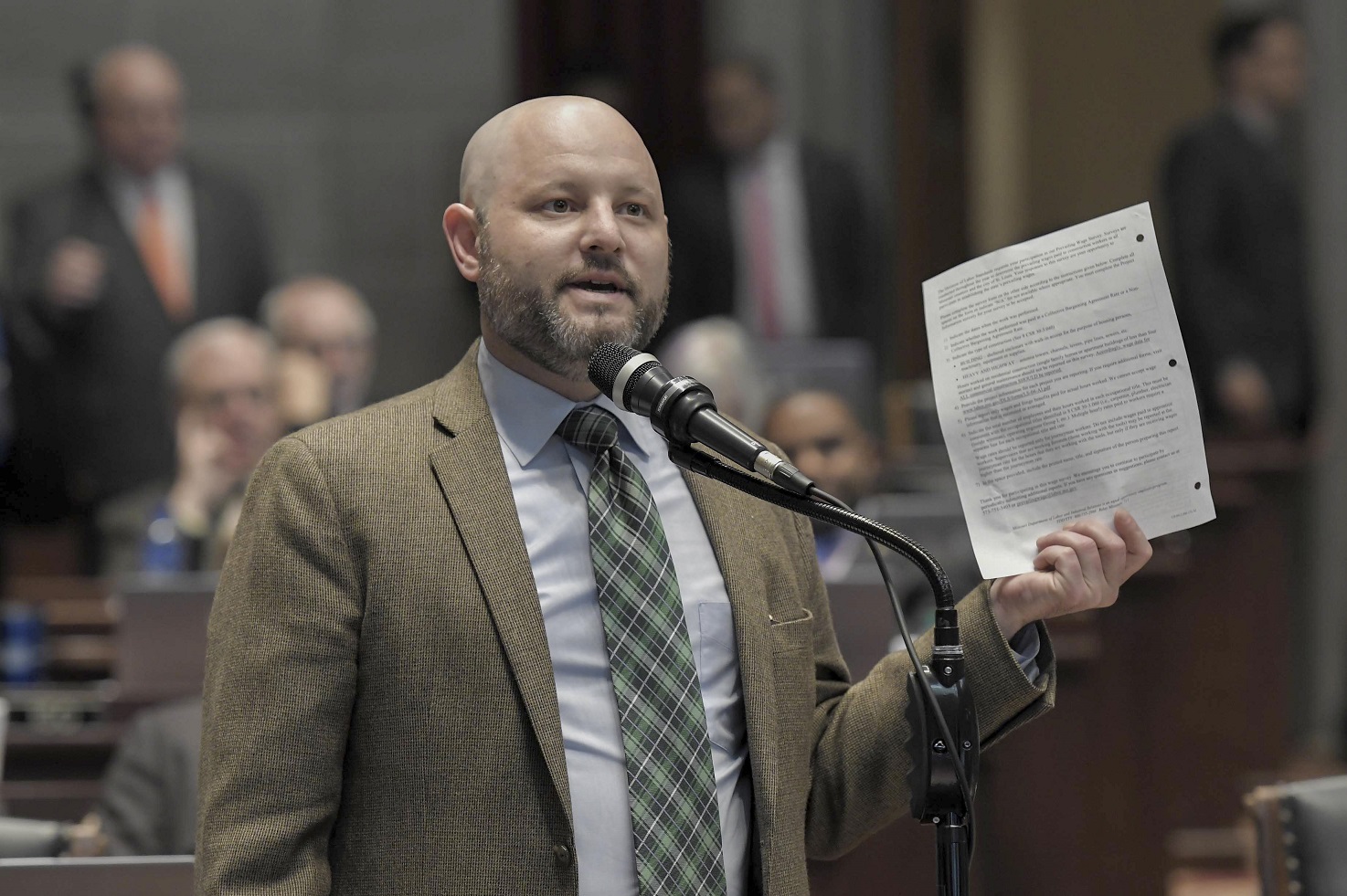A bill that aims to strengthen Missouri’s sex offender registry, and give some sex offenders a better chance at rehabilitation, was one of the bills passed out of the legislature on Friday in the final hours of its regular session.

Language that was part of Senate Bill 655 would have Missouri’s registry mirror the federal system. It would break that registry into three tiers based on the severity of sex-related offenses. Individuals guilty of the least serious offenses would go on the first tier and could petition the courts to be removed from the registry ten years after being put on it. Those on the second tier would be guilty of more serious offenses and could petition for removal after 25 years. The third tier is for those guilty of the most heinous sex offenses, who must remain on the registry for life. Those who commit additional sex crimes or other felonies while already on the registry also would not be eligible to be removed.
The House handler of SB 655, St. Charles representative Kurt Bahr (R), said there are so many people on Missouri’s sex offender registry, for all levels of crimes, that it waters down the meaning of the list.
“By shrinking the list a little bit it adds value to the list,” said Bahr.
Bahr said in its current form, the list treats people guilty of crimes like rape and sexual assault the same as it treats those guilty of offenses such as urinating in public.
“The list, as it grows, ceases to be as effective for public safety because if you simply see a name on the list you don’t know if they are a true problem – a possible rapist of somebody who’s molested children – or if they’re somebody who had a non-contact offense that’s still deemed a sex crime,” said Bahr. “Aside from creating the tiers it also makes the list reflect the level that the offender is as well as what their offense was.”
Bahr said the ability for an offender to come off of the registry can decrease the likelihood that he or she will reoffend.
“There are three major factors for an offender to repeat offend. Those three factors are lack of housing, lack of jobs, and lack of social interactions. A person on the list has a hard time finding housing – a lot of apartment complexes don’t want to rent to anybody on the list; finding jobs becomes difficult because again a lot of businesses don’t want to hire anybody on the list; and if you can’t live or work anywhere near friends or family then you become socially ostracized as well, so there is definitely a very significant social cost to somebody on the list that would lend to somebody becoming a repeat offender,” said Bahr. “Allowing somebody who’s not a violent sex offender to be able to get their life in order and to go get off the list will allow them to become a more productive member of society.”
The proposed registry updates have the support of the Missouri Attorney General’s Office, the Missouri Association of Prosecuting Attorneys, and the Missouri Association of Criminal Defense Lawyers. Bahr said law enforcement was also supportive.
Bahr is glad to see the proposal passed out of the legislature before the end of this year – his last in the House due to term limits.
The House voted on Friday, the final day of the regular session, to pass SB 655, 135-3.
The bill’s other provisions include one that would remove the statute of limitations in cases of sex crimes against children, and one that would set the minimum age to get married in Missouri at 16. Bahr hopes having all those provisions together improves the chance that the bill will be signed into law by Governor Eric Greitens.
Governor Greitens could sign SB 655 into law, veto it, or allow it to become law without taking any action on it.
Earlier stories:
Missouri House proposes reform of sex offender registry
Missouri House considering reform of state’s sex offender registry

